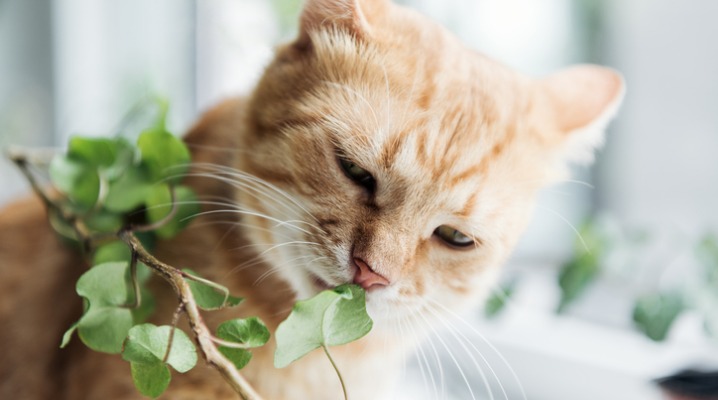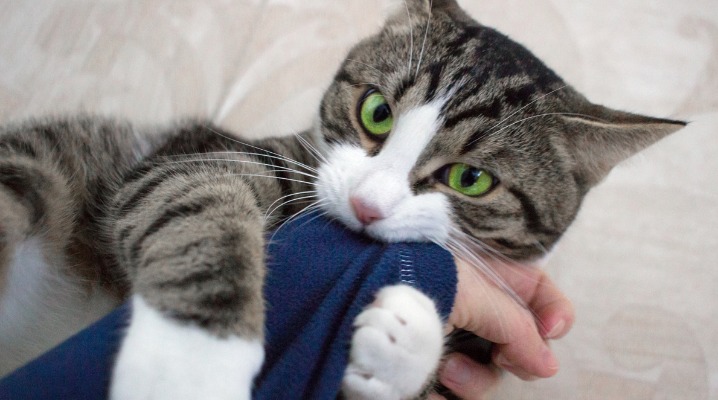
Don’t Let Your Cat Chew on Cords... or Any of These Other Objects!
Although dogs usually get a bad rap for chewing on household items, cats can also partake in destructive chewing from time to time. Discovering your cat chewing on something in your home can be frustrating, especially when it’s an item you can’t easily hide or get rid of.
As irritating as destructive chewing is for you, it can also be extremely dangerous for your cat! Health problems can quickly appear if your kitty’s chewing gets out of hand, so make sure you’re putting a stop to it as soon as possible.
Most dangerous items for cats to chew on
Cats tend to be drawn to chewing on certain items around the home, many of which are very dangerous! Here are some of the most hazardous things your cat can chew on and why you should keep them away as much as you can.

- Electrical cords: Almost every cat owner has discovered a power cord for a phone or computer covered in tiny bite marks from a nibbling cat. This can be extremely irritating, especially in our modern age where we rely on these cords every day. Not only that, but chewing on cords can be very scary for your cat. If your cat chomps down on a cord too hard or bites it in just the right place, it could sink its teeth into the wires inside, potentially triggering electrocution! Cats that chew on cords can develop burns inside their mouths, which are quite painful and difficult to treat. Even if your cat typically chews on cords that are not plugged into an electrical outlet, it could develop a habit that turns dangerous if it finds a powered cord one day.
- House plants: Cats chewing on house plants can also be very dangerous, depending on what types of plants are present. A lot of pet parents don’t realize that the plants they have to decorate their homes are extremely toxic to cats, including lilies, aloe vera, jade plants, pothos and many more. If your cat develops a habit of nibbling on leaves or flowers, it could accidentally get poisoned and become very sick.
- Fabric and clothing: Some cats develop a bad habit of licking and chewing on fabric items like blankets and clothing, particularly those made of wool. Although fabric might not appear to pose a major threat to your kitty, fibers from the fabric could get swallowed, much like your cat’s fur, and make their way into your cat’s gastrointestinal tract. Intestinal blockages are a big concern here and could even be deadly.
- Small objects: Cats love to play with tiny household objects like rubber bands, milk rings and hair elastics, but allowing them to chase and chew on these things could be dangerous. These items are quite small and could present a choking hazard if your cat gets them all the way into its mouth.
Why do cats chew and how you can stop it
Chewing is more common in kittens and young cats because of its link to self-soothing and teething. When kittens are losing their initial teeth and their adult teeth are growing in, they may begin to chew on more objects as a way to soothe the pain or irritation they feel in their gums.

However, adult cats may develop chewing habits, too. Usually, adult chewing is related to anxiety and boredom, as well as curiosity and a form of play. Chewing may also be related to a health problem, including dental issues like tooth pain or gum disease, gastrointestinal discomfort or extreme hunger.
Although chewing is normal, it should not be engaged with or tolerated, for both your cat’s safety and the preservation of your household objects. You may want to speak with your vet about your cat’s chewing behavior to determine whether it is caused by a health or behavioral problem.
To prevent your cat from chewing on dangerous items, you should start by keeping hazardous things out of reach as much as possible. Place toxic plants high up or get rid of them entirely to avoid accidental poisoning. Wrap wires and cords with tubing and tuck them behind furniture to mitigate their availability.
If your cat is still finding ways to chew on things, work on redirecting its attention to something else, like a game or toy. In some cases, just giving your cat extra attention can help reduce its boredom and solve the chewing issue altogether. Give your cat new, safe things to explore, play with and entertain itself through so it has a reduced desire to chew.
If all else fails, visit your vet to discuss your options and ensure your cat does not have an underlying medical condition that is causing it to chew.


